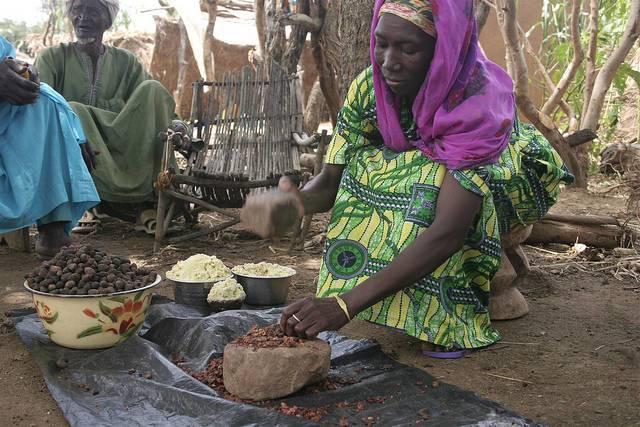
If there is a snapshot to summarize just how the U.S. fared at this weekend's meeting of the world's most powerful heads of state, it would be Ivanka Trump sitting in for her father during a key meeting on world economic issues. Sandwiched between presidents and prime ministers, the 35-year-old unpaid White House aide would only say that her father "had to step out" and that she was sitting in on his behalf.
But according to other observers, President Trump had actually left the meeting hours beforehand when he realized that the G20, usually symbolized by tense but forgiving dialogue, was not going his way. In fact, when it came to things like climate change and the value of multilateral partnerships, Trump may have been at the table, but his focus and his aim, critics noted, were somewhere else.
"Trump seems to regard Germany and other European countries more as economic competitors than as strategic allies," Nicholas Burns, a former state department official told the Financial Times. Burns should know: He served as under secretary for the George W. Bush administration and as NATO ambassador. "That is a great mistake to make about our most important friends in the world."
To be fair, there were other forces at play this year as well. There were 19 leaders who were determined to show the world that the Paris Accord was "irreversible," and they would continue to move ahead. There were personalities and personal agendas to be scored: UK Prime Minister Theresa May, who needs an economic win (like a trade deal with the U.S.) in order to correct her demoralizing loss at the "Brexit" polls in June; firebrand French President Emmanuel Macron, who holds no patience for Trumpian economics or protectionist politics; and German Chancellor Angela Merkel, the host of the summit and by many assessments, the new defacto, if reluctant, head of the free world.
With Trump's unwillingness to continue U.S. engagement on the Paris Accord, the Trans-Pacific Partnership, the North American Trade Agreement and multilateral cooperation in general, the world, says Capital Financial International is now looking for a new voice to lead cooperation in fighting its greatest battles: climate change and ensuring economic sustainability.
"Chancellor Merkel has repeatedly stated that she will insist on speaking about climate change and development issues," CFI said in this week's newsletter. At the top of that list is Africa's growing population and the need to find ways to shore up the need for international financial aid for underdeveloped economies.
That's where Ivanka Trump came in this weekend. Sliding into her father's chair, she put forth her idea for how to address Africa's unsustainable economy: women entrepreneurs. Ms. Trump has never been shy when it comes to supporting women's rights, even though her principled efforts are often overshadowed in the press by her father's more bombastic headlines. But this weekend she had the podium and the opportunity to promote a World Bank Organization she believes in: The Women Entrepreneurs Finance Initiative. The program would be directed at empowering impoverished women in Africa through loans and training and boosting their opportunities to become successful entrepreneurs.
With Ms. Trump's help, the program has already raised more than $325 million from supporting countries, including $50 million from the U.S. The rest of the supporters largely comprise those nations sitting at the table, including Canada, the UK, Saudi Arabia, the Netherlands, Japan and China. The World Bank is hoping to eventually raise that funding total to $1 billion.
The concept behind the program isn't exactly new. A variety of small and large private and public-private partnerships, like Hope International, Kiva and Meketa currently help bring needed microloans and training to aspiring entrepreneurs in Africa. What is often needed, though, is the larger capital and the clout to ensure that banks that sign up do in fact, loan funds that have been promised.
Still, there was a fair amount of criticism against both President Trump and his daughter for the seat switch, a move it seems, also allowed Donald Trump to do what he does best, push for advantageous one-on-one alliances while most of the rest of the G20 carried on multilaterally. His absence didn't help promote the U.S.' standing at the G20 (some critics now deridingly referred to the G19 +1,) or the growing perspective that America, once a force behind multilateral partnerships and 'get-er-done' initiatives, is fading from the force just when the planet and world alliances need it most.
Flickr images: Marco Verch; TREEAID
Jan Lee is a former news editor and award-winning editorial writer whose non-fiction and fiction have been published in the U.S., Canada, Mexico, the U.K. and Australia. Her articles and posts can be found on TriplePundit, JustMeans, and her blog, The Multicultural Jew, as well as other publications. She currently splits her residence between the city of Vancouver, British Columbia and the rural farmlands of Idaho.














